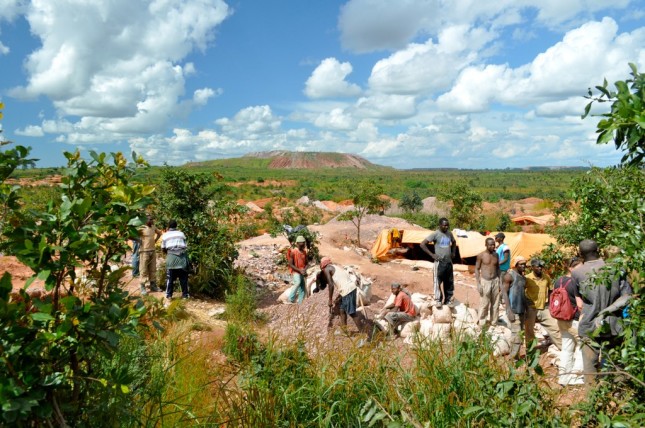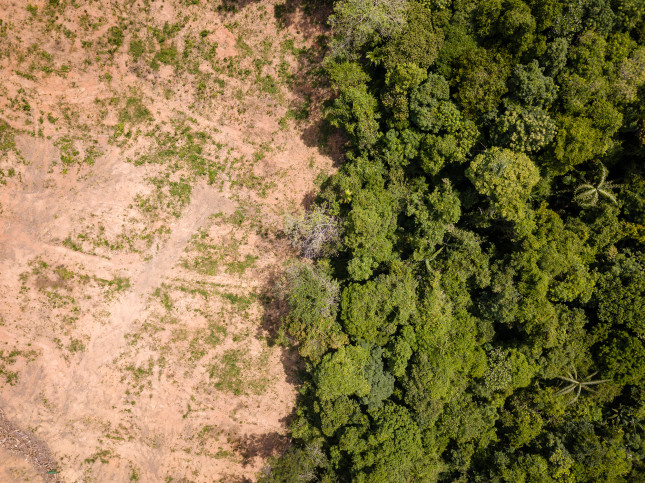-
Divesting Won’t be Enough to Achieve Climate Justice
›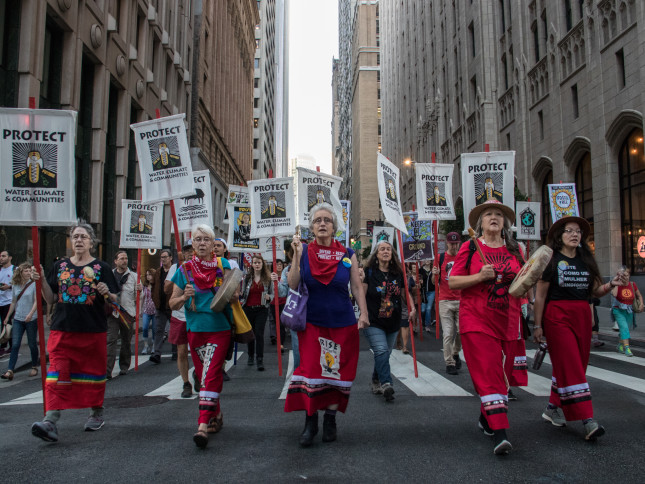
A quiet disruption to the established financial order is underway: Around the world, institutions are pulling their investments out of fossil fuels. Climate activists campaigning for divestment suggest that such economic rearrangements might keep oil, gas, and coal in the ground, curbing carbon emissions. In parallel, some high-profile advocates call for reinvestment in renewable energy. But can the financial sector really drive the structural changes needed to address climate change—and, more fundamentally, climate justice?
-
A Peopled Wilderness: Combining the Best of Chinese Tradition and U.S. Conservation
›
In the Western tradition, the term “wilderness” evokes an image of an idyllic and pristine landscape filled with lush plant life and an abundance of animal species. According to Vance Martin, president of the WILD Foundation, this conception of wilderness, even in conservation areas, leaves out a critical species: humans.
-
Preventing the Next Pandemic: Zoonotic Diseases and Future Outbreaks
› To recover from the devastating impacts of COVID-19, we will need to understand the risks and environmental factors that caused the novel coronavirus and other zoonotic diseases to emerge in the first place, according to a new report by the United Nations Environment Programme and the International Livestock Research Institute. The report, Preventing the Next Pandemic – Zoonotic Diseases and How to Break the Chain of Transmission, examines the root causes of the COVID-19 pandemic and other zoonotic diseases. It also explores the complex linkages between biological and non-living factors that impact our global ecosystem and spread diseases.
To recover from the devastating impacts of COVID-19, we will need to understand the risks and environmental factors that caused the novel coronavirus and other zoonotic diseases to emerge in the first place, according to a new report by the United Nations Environment Programme and the International Livestock Research Institute. The report, Preventing the Next Pandemic – Zoonotic Diseases and How to Break the Chain of Transmission, examines the root causes of the COVID-19 pandemic and other zoonotic diseases. It also explores the complex linkages between biological and non-living factors that impact our global ecosystem and spread diseases. -
From Crises to Building Resilience for U.S. National Security
›
This year, three pandemics have shaken the fabric of our society, said Les Williams, Co-Founder and Chief Revenue Officer at Risk Cooperative at a recent event co-hosted by the Wilson Center and Stanford Woods Institute for the Environment on building greater resilience for U.S national security. The spread of COVID-19 highlighted the vulnerabilities in our healthcare system. The murder of George Floyd became the tipping point in communicating the risk that Black Americans have been facing for more than 400 years. And a number of natural disasters exposed society’s vulnerability to climate change.
-
Exposure to Air Pollutants and Heat Made Worse by Climate Change Impact Black Mothers the Most
›
Environmental exposures exacerbated by climate change are contributing to adverse pregnancy outcomes across the United States, with a disproportionate impact on Black women. A new study published in JAMA Network Open draws concrete connections between exposure to air pollution, ozone, and high temperatures during pregnancy and the likelihood of adverse pregnancy outcomes—premature birth, low birth weight, and stillbirth.
-
Reports Highlight the Need for Further Consideration of Gender, Climate, and Security Linkages
› In a recent Stockholm International Peace Research Institute (SIPRI) paper, Elizabeth Seymour Smith, a Research Assistant with SIPRI’s Climate Change and Risk Programme, explores the intersection of climate change, gender, and security in Women, Peace and Security (WPS) national action plans (NAPs) of 80 countries. Using qualitative content analysis, the article finds that states frame and respond to climate change and gender-based security in differing ways.
In a recent Stockholm International Peace Research Institute (SIPRI) paper, Elizabeth Seymour Smith, a Research Assistant with SIPRI’s Climate Change and Risk Programme, explores the intersection of climate change, gender, and security in Women, Peace and Security (WPS) national action plans (NAPs) of 80 countries. Using qualitative content analysis, the article finds that states frame and respond to climate change and gender-based security in differing ways. -
Cobalt is Critical to the Renewable Energy Transition. How Can We Minimize its Social And Environmental Cost?
›
Its name conjures an image of vivid deep blues. But when cobalt is dug out of the ground in ore form, there’s barely a hint of the rich hue it lends its name to. In the Democratic Republic of the Congo, which produces more than half of the world’s supply, it takes the form of heterogenite, a dull brownish mineral that could easily be mistaken for small clods of dirt.
But people die for this mineral. Children suffer for it. Livelihoods, educations, neighborhoods, environments and personal safety are sacrificed for it.
-
How Environmental Geopolitics Expands Our Understanding of Risk and Security
›
The coronavirus has everyone weighing risk and security within a sliding scale of geographic connections and boundaries. Dots and circles of infection pack our virus maps. We more clearly see the fragility of commodity chains that structure our food systems and energy supplies. The virus easily crosses state borders while security protocols within states have been focused on boundaries between individuals and speech droplets. In many ways, human interaction with this microbe illustrates why an environmental geopolitics perspective is powerful.
Showing posts from category environment.


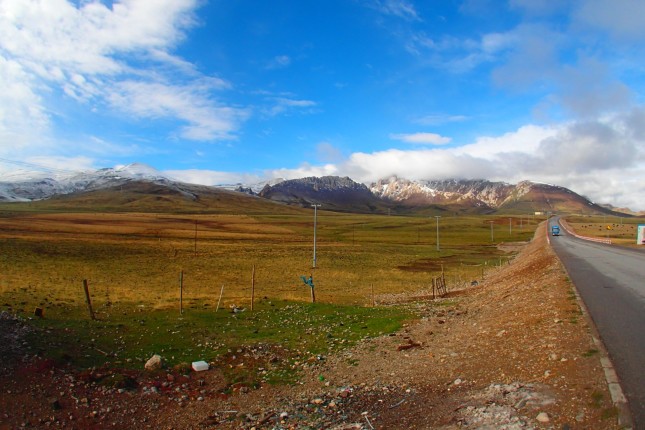
 To recover from the devastating impacts of COVID-19, we will need to understand the risks and environmental factors that caused the novel coronavirus and other zoonotic diseases to emerge in the first place, according to a new report by the United Nations Environment Programme and the International Livestock Research Institute. The report,
To recover from the devastating impacts of COVID-19, we will need to understand the risks and environmental factors that caused the novel coronavirus and other zoonotic diseases to emerge in the first place, according to a new report by the United Nations Environment Programme and the International Livestock Research Institute. The report, 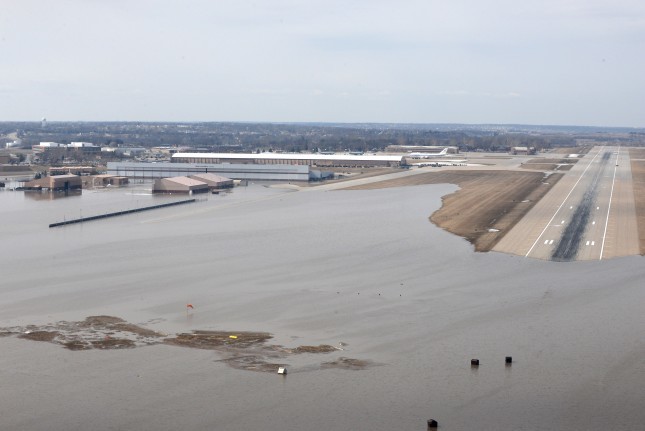

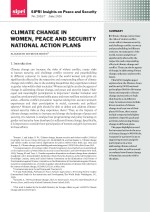 In a
In a 